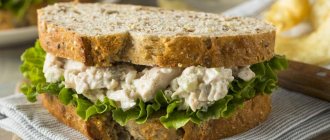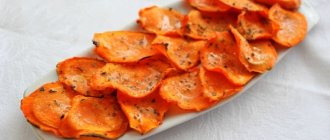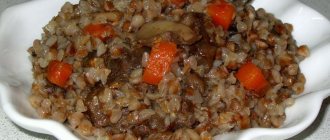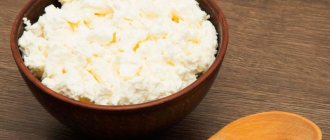Historical background on sugar
Over 150 years, people began to consume sugar ten times more
Let's go back 150 years. At that time, sugar production was very complex, expensive and, on average, a person consumed no more than 2 kg per year. Studies from the beginning of the 21st century showed 35-40 kg of sugar per capita per year. Such rapid growth could not go unpunished. And if 50 years ago animal fats were named the main enemy, then sugar became the culprit.
Many people, especially the weaker sex, believe that they cannot live without sweets. The main argument in favor of this is that nerve cells use exclusively glucose as an energy material. Indeed, our brain cells prefer this monosaccharide. But, the need for it is limited to 50g per day. The remaining tissues are able to use fatty acids and amino acids for their needs. People with a sweet tooth overlook the fact that almost all carbohydrates are broken down quite quickly by enzymes into glucose or fructose (a slightly different, inverted form of glucose). That is, you can “gain” 50g or even more sugar for your beloved brain from a serving of pasta, 2 slices of whole grain bread and a couple of apples. There is no longer room for candy and ice cream.
Among other things, ready-made store-bought sweets will bring you fats (usually margarine), white wheat flour, dyes and preservatives. And if sugar itself, in comparison with fats, does not have the highest calorie content, then in the composition of donuts, cakes, milk chocolate, with which sweet tooths finish any breakfast, lunch and dinner, it adds 300-500 kcal. That's a lot.
Be careful, because often we do not pay attention to excess calories.
How to combine eating sweets so that there is no harm to the body
Sweets are simple carbohydrates that can quickly saturate the body, raise insulin levels, and after half an hour the sugar drops and the desire to eat returns. But the food eaten in this case is converted into fat deposits and all thanks to insulin released into the blood. So if the question of whether it is possible to spoil your appetite with sweets is still on the agenda, then the answer is unequivocal - yes!
Oddly enough, sweets are also good for the body, but you must adhere to certain rules:
- Small doses of sweets can stimulate the taste buds. One piece of candy half an hour before a meal won’t make a difference, but half a kilo will definitely kill your appetite.
- Sweets with fiber are an excellent snack option. Such a snack can be fruits: apples, strawberries, banana. In combination with nuts, such food, although it dulls appetite, does not allow insulin to rise.
- Use a trick. Feed your child porridge, but add dried fruits, nuts, and honey to it. The child will be happy with sweets, but the body will be completely satisfied with the nutritional composition.
- Add some protein to every meal. Protein helps reduce glycemia and contributes to the harmonious formation of the child’s body.
Remember that in matters of child nutrition, you cannot leave everything to chance. Nutrition should be balanced, and sweets should always be under control. Even if the child makes a pleading face, and your parental heart wants to pamper the baby, pull yourself together, you are responsible for his health. Dose out sweets, replace them with fruits more often and your baby will be healthy, happy and with an excellent appetite.
Subscribe
Detki.guru on Telegram
Leave a comment
Why do we love sweets and why is it dangerous?
Let's look at the reasons for the dangerous love of sweets. Scientists have confirmed some of them.
- Rare and insufficient meals, just hunger. Sweet foods quickly restore blood glucose levels, and the natural desire to eat recedes.
- A deficiency of certain microelements (iron, calcium, magnesium, chromium) can also increase the need for foods containing them, and often these are sweets. Chocolate, ice cream, for example.
- State of stress, lack of serotonin. Sweet foods contribute to the additional release (but not synthesis!) of this hubbub, temporarily helping to fight stress.
- Formation of addiction to sugar. The strength of this addiction is compared to cocaine addiction, so a decisive refusal of sweets is usually accompanied by a syndrome
- Insufficient amount of sleep, late going to bed. Biologically, a person’s clock is configured in such a way that the synthesis of hormones (including those responsible for the feeling of hunger and satiety) is associated with a certain time of day. If you stay up late, you can get under the influence of ghrelin, which will call you to a bowl of candy.
- Genetic predisposition. Quite a lot (more than 50) of gene polymorphisms (point changes in the structure of DNA) responsible for the regulation of appetite, the growth of fat cells, and sensitivity to insulin and glucose have been studied. Research has shown a link between some of them and cravings for sweet tastes.
Let's say you agree that you have a sweet tooth. And even though it is not good for health and beauty. And they have already decided to end it. What can help you with this?
- Understanding that giving up sweets will bring discomfort and inconvenience. We talked about cravings for sweets as a variant of drug addiction. It will not be easy for the body to adapt to more complex ways of producing glucose. Your head may hurt, your mood and sleep may deteriorate. This condition lasts on average 48-72 hours. If you endure them, it will be easier in the future.
- Analyze your usual diet: are there big “holes” in it, long breaks in meals, which are usually filled with sweets? Divide the daily set of foods and dishes into 4-5 meals, so that every 2-3 hours you have something to chew (but not sweets!)
- Include a protein dish at every meal - meat, poultry, cheese or cottage cheese, legumes. They will provide a longer feeling of fullness and reduce the risk of eating candy.
- Don't exclude healthy fats from your diet. Some nuts, avocado, olive oil, eggs or fish along with sufficient calories will add Omega-3,6 fatty acids and compensate for the lack of magnesium, zinc, iron, chromium.
Remember "healthy" fats.
- If you want to eat sweets, drink water or unsweetened tea; sometimes the feeling of thirst is mistaken for a feeling of hunger.
- Another option is to take a break for a short warm-up. You can walk, warm up a little, jump - look, and let go. Muscle work promotes the production of endorphins, which are also released by sugar. That is, in terms of relieving stress and tension, glucose and physical activity have similar mechanisms
- The absence of sweets in the house or workplace is a tough but quite effective approach.
- If there is friendly support and company in the fight against sugar, success is guaranteed. Your best friend and family members simply must become your allies and fans!
- For those who are in no hurry, you can choose the path of gradual weaning. To do this, you need to honestly count the number of desserts per day, reduce them to a minimum, then include them not every day, and finally, no more than 1-2 times a week. Try to ensure that the portion “weighs” no more than 150 kcal. And replace quantity with quality. Replace 100g of Snickers with 10-15g of the best truffle candy
Tips to help normalize your child's food intake
- Make your child feel important. Give him a few meal options to choose from or ask him what to make for lunch. This approach will make you take food more seriously, because he himself created a menu for himself
- Involve your child in cooking. Trust him with the simplest task, and you will see that children are much more willing to eat food that they have prepared themselves.
- Don't forget about family meals. A child learns a lot from adults and tries to imitate them in everything, including culinary preferences.
- Try to invite people to the table at the same time.
- Get outdoors more often. A half-hour walk before lunch will definitely increase your appetite.
- If a child sits too long before eating and does not have time to eat everything in 20 minutes, then after this period of time it is better to remove the food and let the baby go. If you force him with the words “You won’t go anywhere until you eat,” then he may develop a negative attitude towards the process of eating.
- Instead of buns and sandwiches, try to feed your child complex carbohydrates. Porridge in the morning is much healthier than a sandwich with butter, as it is good for digestion and will keep you feeling full longer.
Is it possible to fight a habit?
Substitution
Most often, this method is recommended by nutritionists. We can continue to drink tea after meals, because if we abruptly give it up, we will not feel full, we will not be able to “put an end to” eating and will continue to “eat” for several “approaches” after. But we can no longer drink tea with marshmallows or candy, because this increases the “inflow” of calories. All we have to do is consume exclusively non-calorie sweets:
- number one on the list is stevia extract. Of course, few people among the “real sweet tooth” like it, and it tastes completely different from sugar, but if you take it with erythritol, or mix it with vanilla extract, and add it to black tea, you can get a quite pleasant taste and not gain extra calories. We purchase stevia in stores for diabetics, according to the Dukan diet and specialized health stores;
- number two is regular sweet fruit. For example, you can take chopped banana or mango, sprinkle with cinnamon or ground vanilla, and add to tea or coffee. There is only one downside to this option - many people do not really like fruits or do not tolerate eating them immediately after the main meal;
- number three - dried fruits and nuts. They are quite high in calories, but contain many useful substances, so nutritionists often recommend eating them. But the doses should be “homeopathic” - 1-2 pieces of dried apricots with the same amount of almonds, for example. These mini snacks work well after your main meal. And as a separate meal, we are recommended to have 6-8 “berries” of dried fruits with the same amount of nuts;
- Many nutritionists advise eating honey for the reason that it is healthier than regular sweets and is quite tasty. But here you need to understand that the product can cause an allergic reaction in people who cannot tolerate specific proteins of bee products. In addition, the calorie content of honey is quite comparable to the energy value of simple white sugar, so it is not possible to save money for those who simply replace sugar with honey.
Archive number No. 43 (837) dated October 26, 2010 - Zdoroviechko
GOOD TO KNOW
We are not only what we eat, but also how we eat. Fast or slow, washed down with compote or not - each of us has formed a “bouquet” of habits associated with the absorption of food. Experts decided to weigh the pros and cons of the most common of them.
Habit 1. Eat everything - first and second - with bread
Bread is good because it is quickly digested, which means that calories quickly end up in the blood and the process of saturation occurs. I only recommend chewing the bread thoroughly and treating it well with saliva - this will speed up the process of starch digestion. But I do not advise office workers who lead a sedentary lifestyle to load up on bread because of its calorie content, otherwise they will become overweight. Plus, bread, like potatoes, “dilutes” the vitamins and microelements of an already often poorly balanced diet.
Habit 2. Eating sweets right after lunch
Eating sweets after meals is not harmful. Just not immediately after meat: sweets will dilute gastric juice and it will be difficult to digest. Take your time with dessert: pleasure for the brain depends not on the chocolate bars you eat, but on the time it spends in your mouth. So savor and enjoy.
Habit 3. Eat very quickly
The faster nutrients enter the blood, the greater the load on the pancreas, and this can trigger the development of diabetes. Therefore, I would advise you to slow down your food intake. But you shouldn’t go to extremes. For example, I came across advice to chew a piece of food 33 times. Only carbohydrates are digested in the mouth. Therefore, it makes sense to actively chew cereals, bread, flour products, vegetables and fruits. As for meat, it just needs to be crushed to provide access for gastric juice.
Habit 4. Have cereal for breakfast
Those who start eating cereal for breakfast may experience constipation. This is due to the fact that they do not provide volume, unlike vegetables, and the intestines end up working poorly. In addition, porridges are high in calories. And if after a “porridge” breakfast you move little (you leave the apartment, get into the car, then go to your desk), you risk increasing cellulite. The optimal breakfast is meat with vegetables. Firstly, beef and pork will have time to digest by evening only if you eat them in the morning (poultry and fish can be eaten before 2 pm). Secondly, vegetables will act as a sorbent and absorb the cadaveric poisons of the meat. Porridge does not fulfill this role.
Habit 5. Eat too much at night
When a person is in an upright position, metabolism proceeds at a speed of 75 kilocalories per hour, when sitting - 50, lying - 25. In conditions when the digestive system is weak, food begins to ferment (if saprophytic microflora is present in the intestines) or rot (if pathogenic). And it is not amino acids that enter the blood, but the waste products of this microflora. In addition, if you dine on meat, then by morning it will not even have time to digest (this requires 6-9 hours). To get rid of this habit, I advise you to eat frequently, 4-5 times during the day (the amount of food should be such that it fits in two folded palms) and have snacks. The blood will be full of nutrients, and the brain, having analyzed its composition, will not give the command “eat!” In the evening.
Habit 6. Wash down your food
While eating food, you should not drink liquids that do not have a juice effect. For example, water. It will dilute gastric juice and the digestion process will slow down. Sweet compote will do even more harm. Due to the sweetness, it will relax the stomach, and it will stop actively producing juice. But you can drink coffee with food, as it has a juice effect.
Elena Tokarczuk
Share link:
Subscribe to “For Each Other”:
Yandex News Yandex Zen Google News YouTube Video
Relying on quick successes and underestimating the “enemy”
Sugar addiction is so strong that it is on a par with smoking, alcoholism and drugs. Sugar stimulates the release of endorphins, which give a person a good mood and relieve stress. And subconsciously everyone strives for this. In addition, when consuming refined foods, microelements, in particular chromium, are very actively used. It is responsible for resisting the desire to eat sweets. The result is a vicious circle. If this process is not controlled, then today a person will eat one piece of cake, tomorrow two, and then even more.
It’s not possible to get rid of the habit in a couple of weeks; at best, it takes two months, the doctor emphasizes.
It all starts with our desire to eat sweets. This craving can have several causes.
- Psychology. We experience stress and nervous tension every day, but the body already knows through what mechanisms this condition can be compensated. Sweet foods release the pleasure hormone dopamine. We remember the link “sweet = high” and use it.
- Condition of the gastrointestinal tract (GIT). Glucose, which enters the body in excess after eating sweet foods, is a breeding ground for pathogenic microflora, which is capable of sending signals to the brain that are similar in action to neurotransmitters. It feels like we ourselves want sweets, but in reality the bacteria that live in our intestines want it.
- Lack of complex carbohydrates in the diet in the required quantities. We are accustomed to neglecting a sufficient amount of cereals, legumes and pasta made from durum wheat or whole grains and try to compensate for them with sweets.
- The female body - PMS and different phases of the cycle. Physiologically, a woman’s food desires also depend on her cycle. These days, the body needs foods rich in magnesium and iron, and B vitamins.
The habit of eating sweets and how to fight it
To begin with, it’s worth deciding why you should fight the habit of eating sweets at all. There is no evidence yet that moderate consumption of sugary foods has a significant effect on health. Moderate means getting no more than 10-20% of your total daily carbohydrate intake from sweets. Eating more may have health consequences:
- increased blood sugar levels;
- pancreas overload;
- damage to tooth enamel and increased risk of caries;
- changes in blood pressure
In people with impaired pancreatic function, overeating sweets can provoke diabetes. However, sweets are not the direct and sole cause of this disease. Therefore, you shouldn’t blame everything on them, even though no one says that they are useful.
How to determine that constant consumption of sweets is a bad habit? It’s very simple - you eat it without taking into account your mood, time of day, year, or any other factors. You are just used to eating this way since childhood - tea, and with it - candy, and tea after meals is a must. At the same time, giving up a habit requires effort of will, and this does not always work out. In most cases, it doesn't work out at all.











